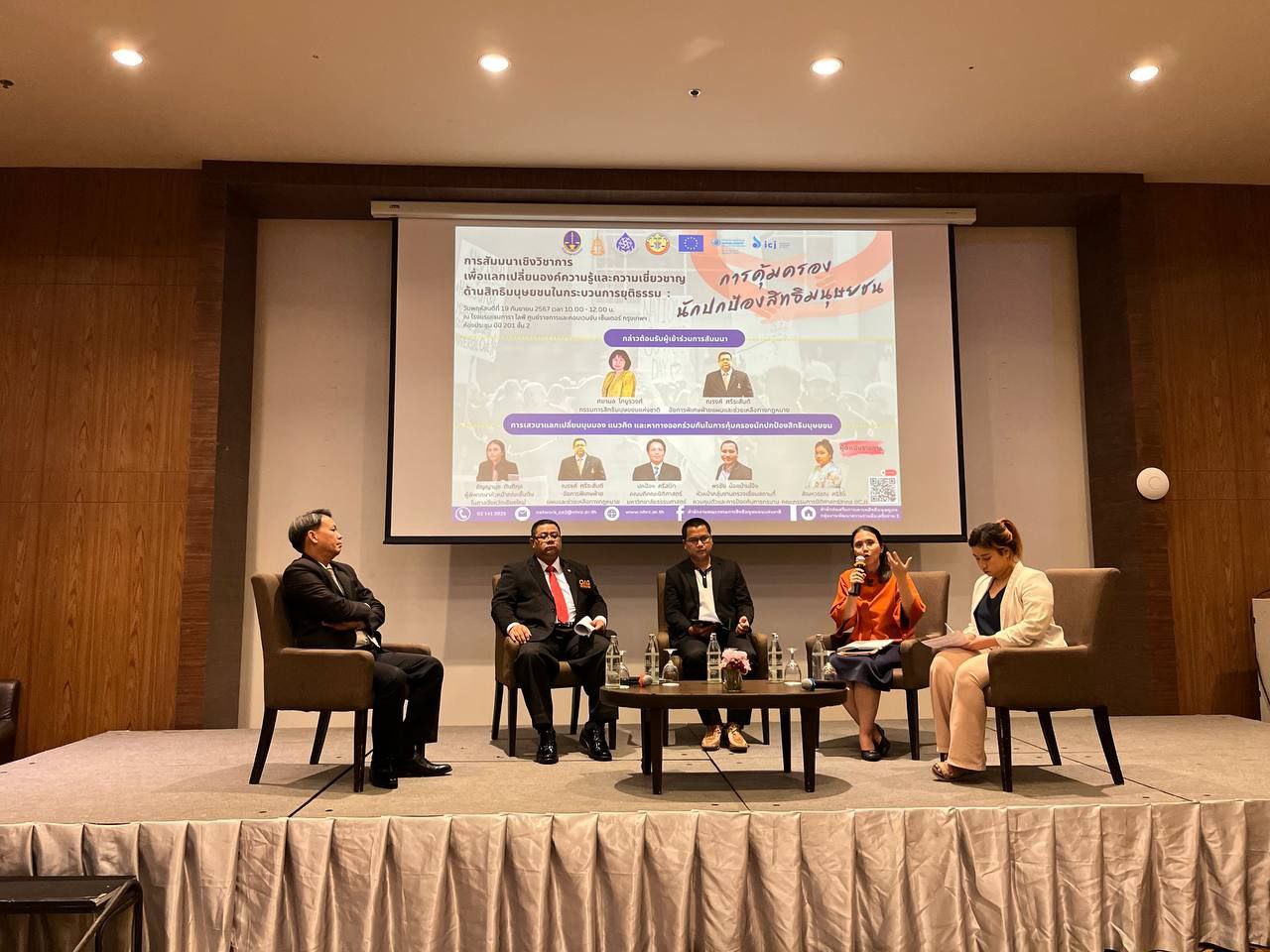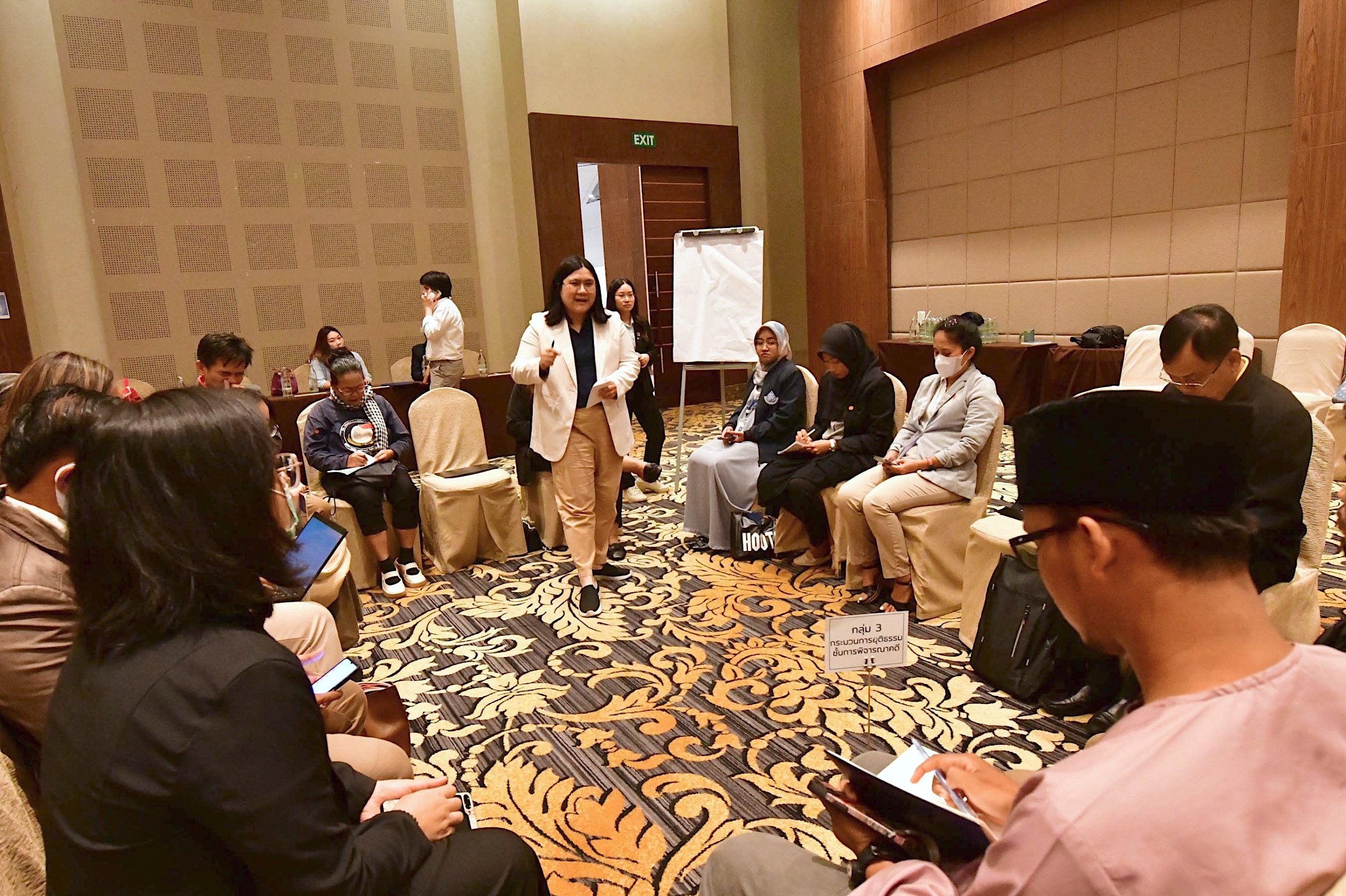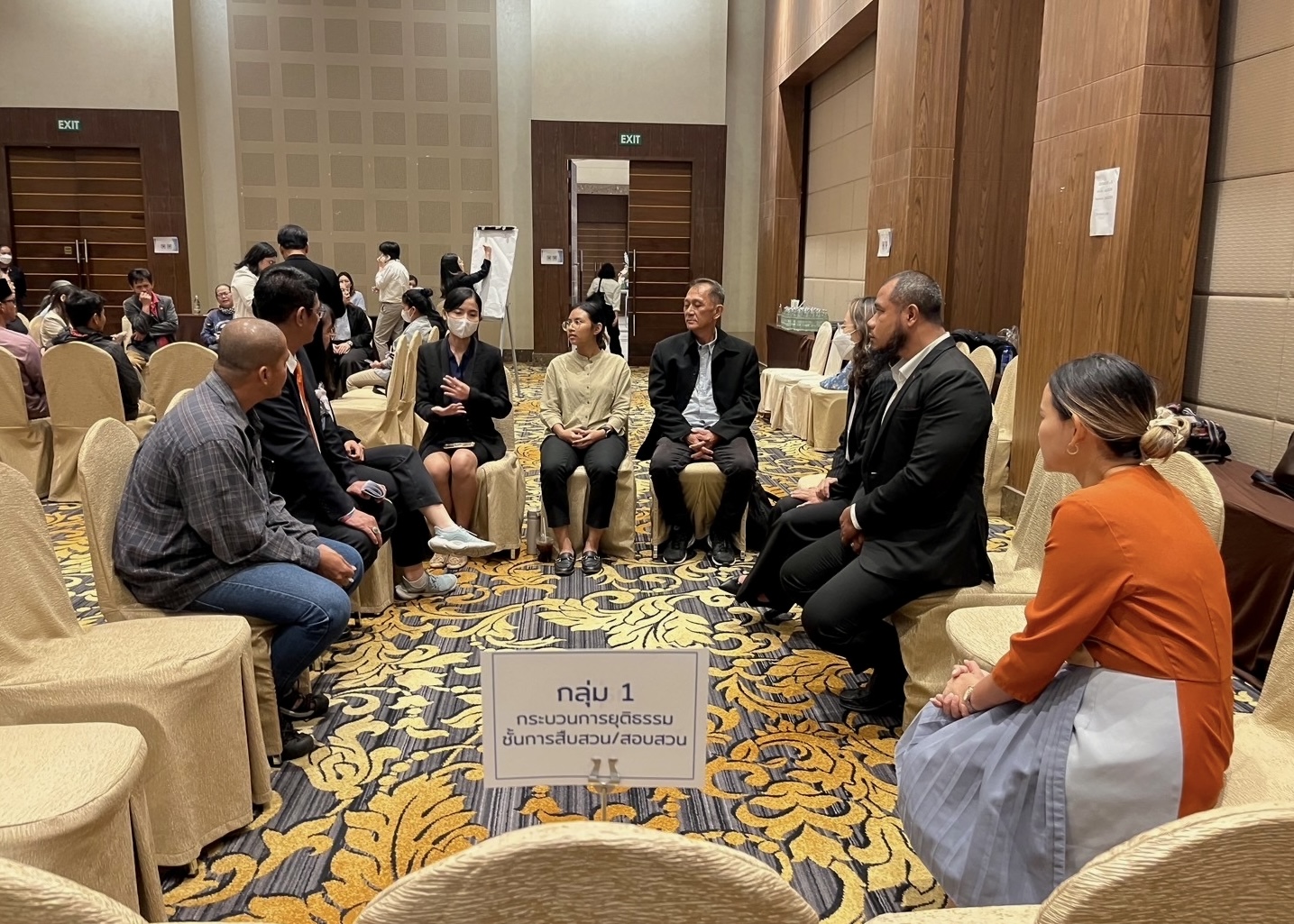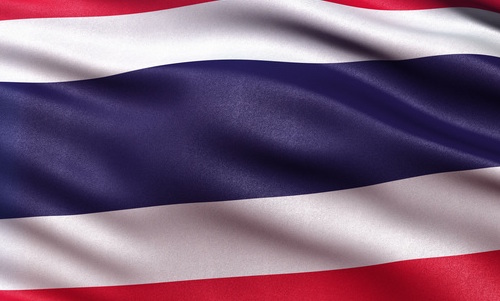In a series of justice sector dialogues co-hosted by the ICJ, it advocated for the need to ensure that human rights are at the core of judicial processes.
The dialogues, which took place on 23 August and 6 and 19 September 2024, were aimed at fostering an exchange among justice sector actors and members of civil society organizations to promote a human rights compliant justice system.
Key areas of concern were the need for non-discriminatory justice processes, strengthening judicial responses in environmental cases, and protecting freedom of expression from abuses through the judicial system.
These dialogues were organized in collaboration with the Office of the Administrative Court, the Office of the Attorney General, the Lawyers Council of Thailand, the National Human Rights Commission of Thailand (NHRCT), the Office of the High Commissioner for Human Rights (OHCHR), and the European Union (EU). Some 180 justice sector actors—including judges, court clerks, public prosecutors, lawyers, law enforcement officers, ministry officials, as well as representatives from CSOs and human rights defenders—participated.
The first dialogue: Eliminating discrimination and stereotyping within the justice system
During the dialogue, expert panelists and participants discussed the challenges of advancing non-discrimination in the administration of justice, both systematically and operationally. This includes efforts towards the elimination of gender stereotyping within legal proceedings. In this regard, Busayapa Sirsompong from SHero Thailand highlighted during the dialogue the tendency of those administering justice to prioritize “family unity” over survivors’ security and justice in domestic violence cases, which sometimes leaves the survivors vulnerable to repeated harm.
Jarunee Siripan, Director of the Foundation for Action on Inclusion Rights (FAIR), further addressed the stigmatization faced by drug users and sex workers when reporting gender-based violence (GBV). In addition to fearing prosecution due to the criminalization of drug use and sex work under Thai law, their allegations are often disregarded by justice sector officials.
Melissa Upreti, ICJ’s Asia-Pacific Director, also emphasized that achieving a non-discriminatory justice system requires a combination of decriminalization and a victim-centered approach. She introduced several tools, including the Bangkok General Guidance for Judges in Applying a Gender Perspective, which offers guidance to justice actors on eliminating harmful gender stereotyping in the administration of justice. She also called attention to the 8 March Principles for a Human Rights-Based Approach to Criminal Law, which addresses the harmful effects of unjust criminalization on persons from marginalized communities, particularly concerning consensual sexual activities, sexual and reproductive health, gender identity, drug use and poverty.
Additional panelists in this dialogue included NHRCT Commissioner Supatra Nacapew; Judge Saithip Sukatipan from the Supreme Administrative Court; Narong Srirasan from the Office of the Attorney General; Pol. Col. Wirapon Yai-arun from Royal Thai Police Region 5; Nathasiri Bergman from the Human Rights Lawyers Association (HRLA); and Hanae Hanzawa from OHCHR.
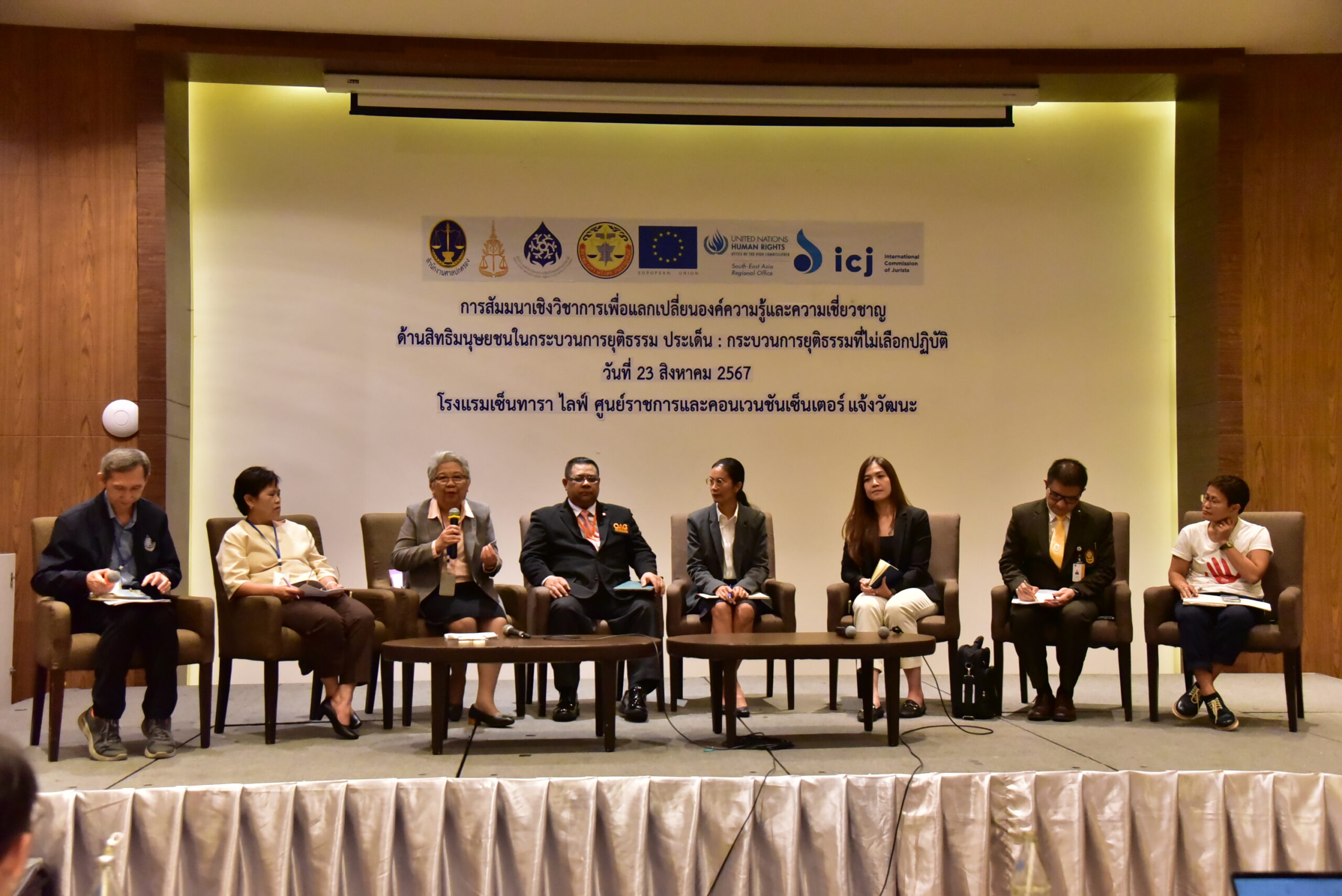
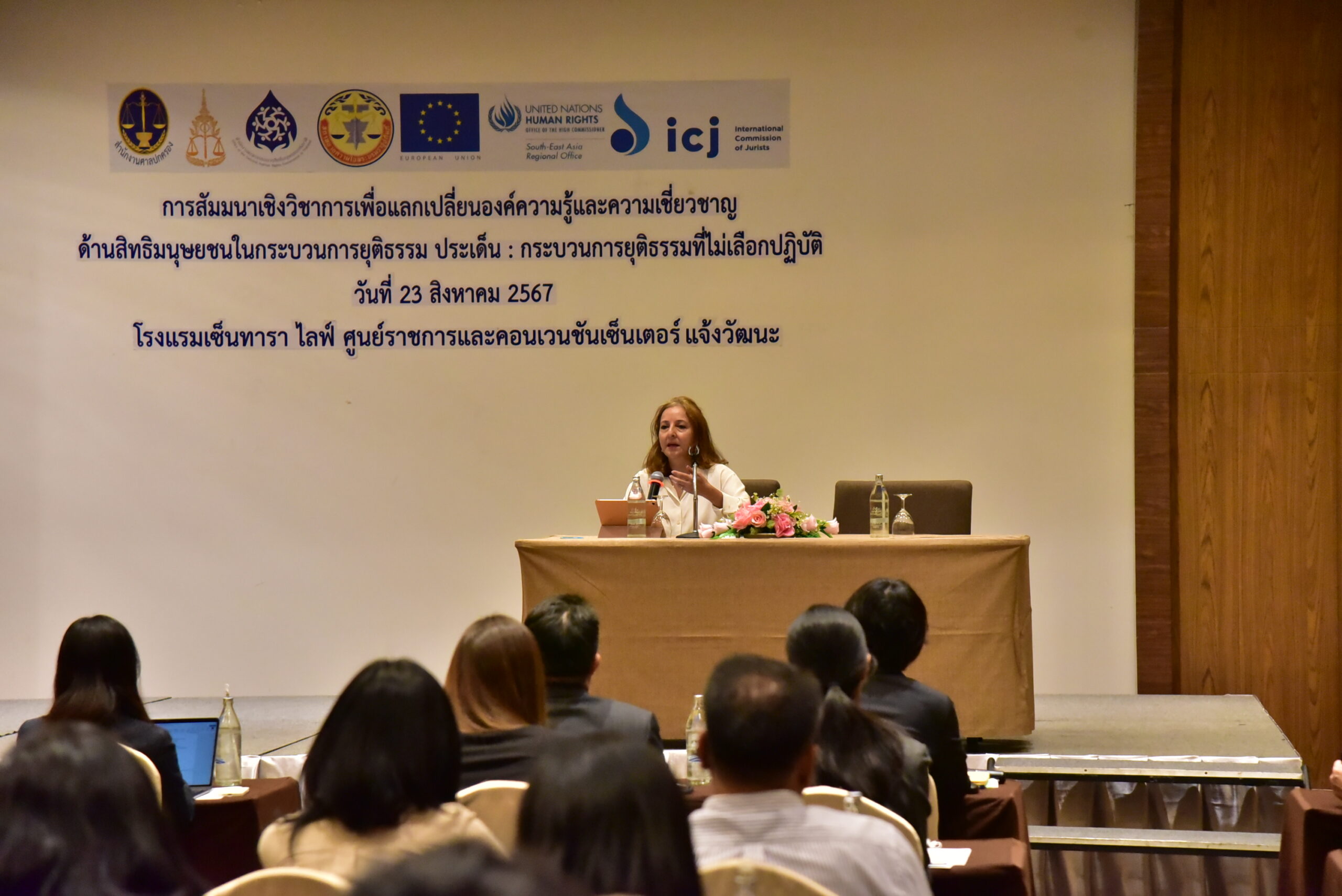
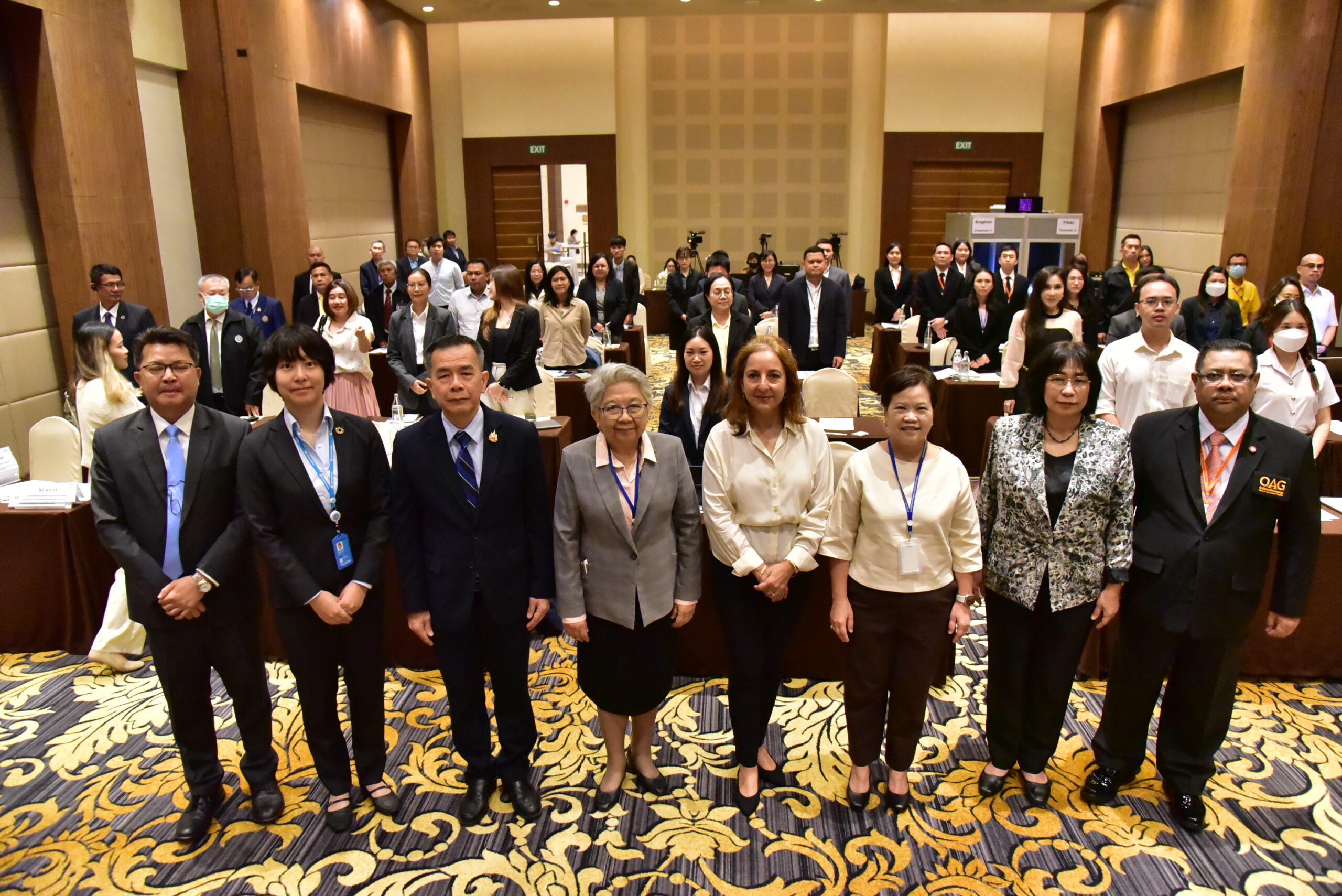
The second dialogue: Seeking justice and remedies in relation to environmental issues
Panelists, including Judge Prapot Klaisuban from the Supreme Administrative Court, as well as participants, highlighted various challenges faced by individuals and communities pursuing justice and remedies for environmental issues. These challenges include the inherent complexities of environmental litigation, preparing evidence and expert witnesses, and contesting courts’ discretionary decisions on remedies. Without adequate technical support, these obstacles make it particularly difficult for those affected to access effective judicial remedies.
Surachai Trongngam, Secretary-General of EnLaw Thai Foundation (EnLAW), suggested addressing concerns from their root causes by amending relevant laws to explicitly protect the right to a clean, healthy, and sustainable environment and to ensure meaningful community participation in decision-making. He also advocated for developing judicial guidelines to inform court rulings in relation to environmental issues, in alignment with international human rights law and standards.
Other panelists in this dialogue included NHRCT Commissioner Sayamol Kaiyoorawong; Judge Suntariya Muanpawong from the Court of Appeal, Region II; Romchat Wachirarattanakornkul from OHCHR; and environmental lawyer Chamnan Sirirak.
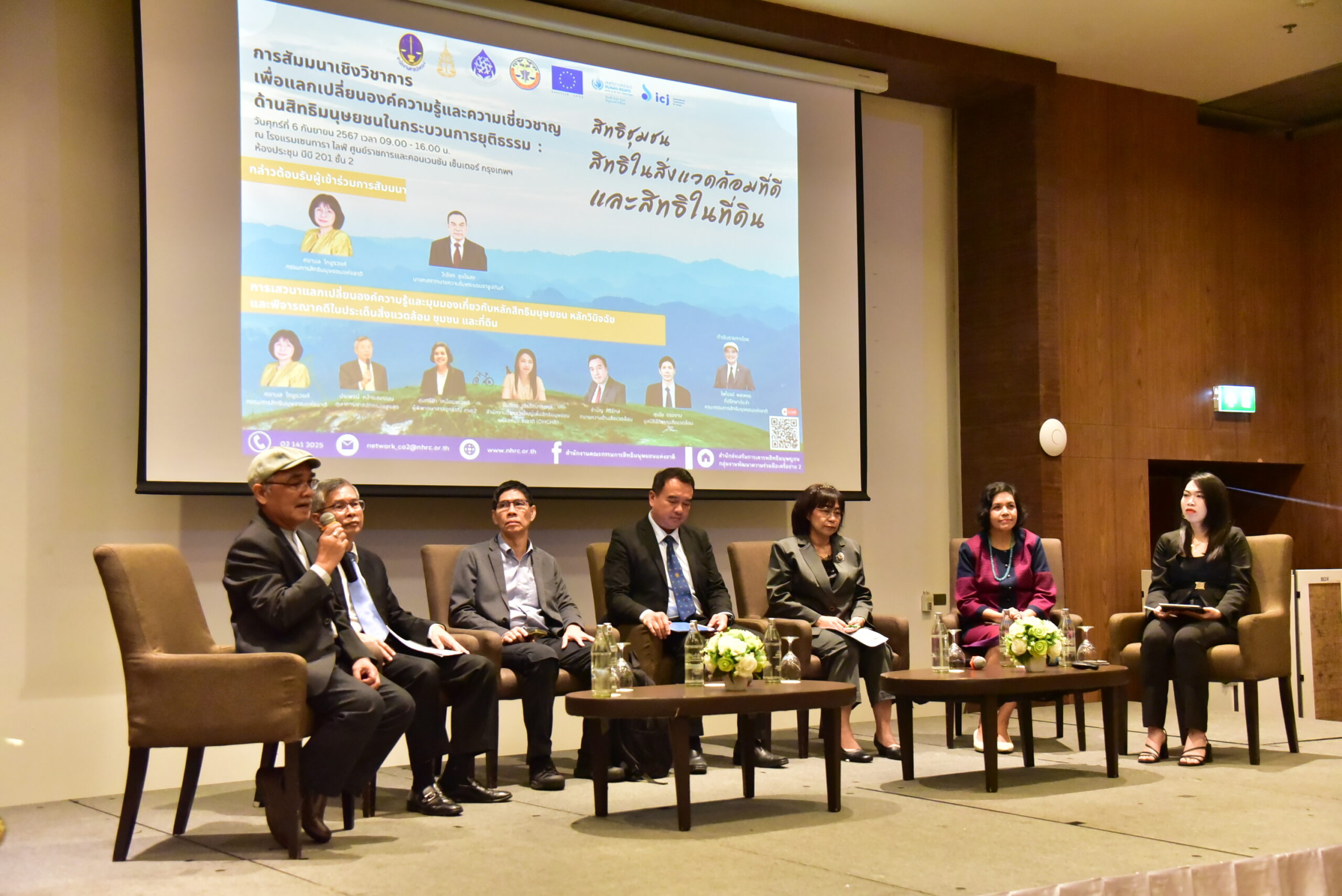
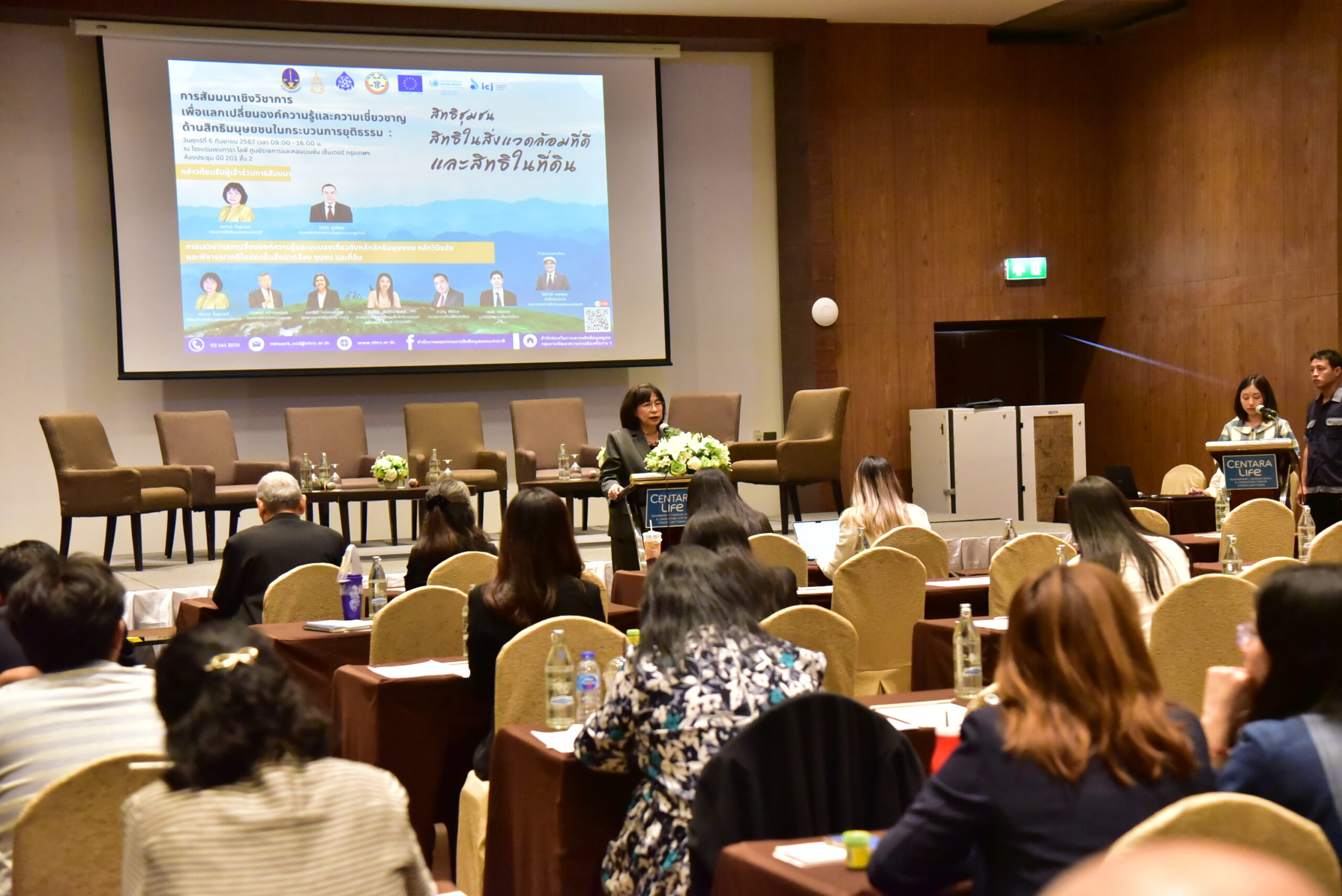
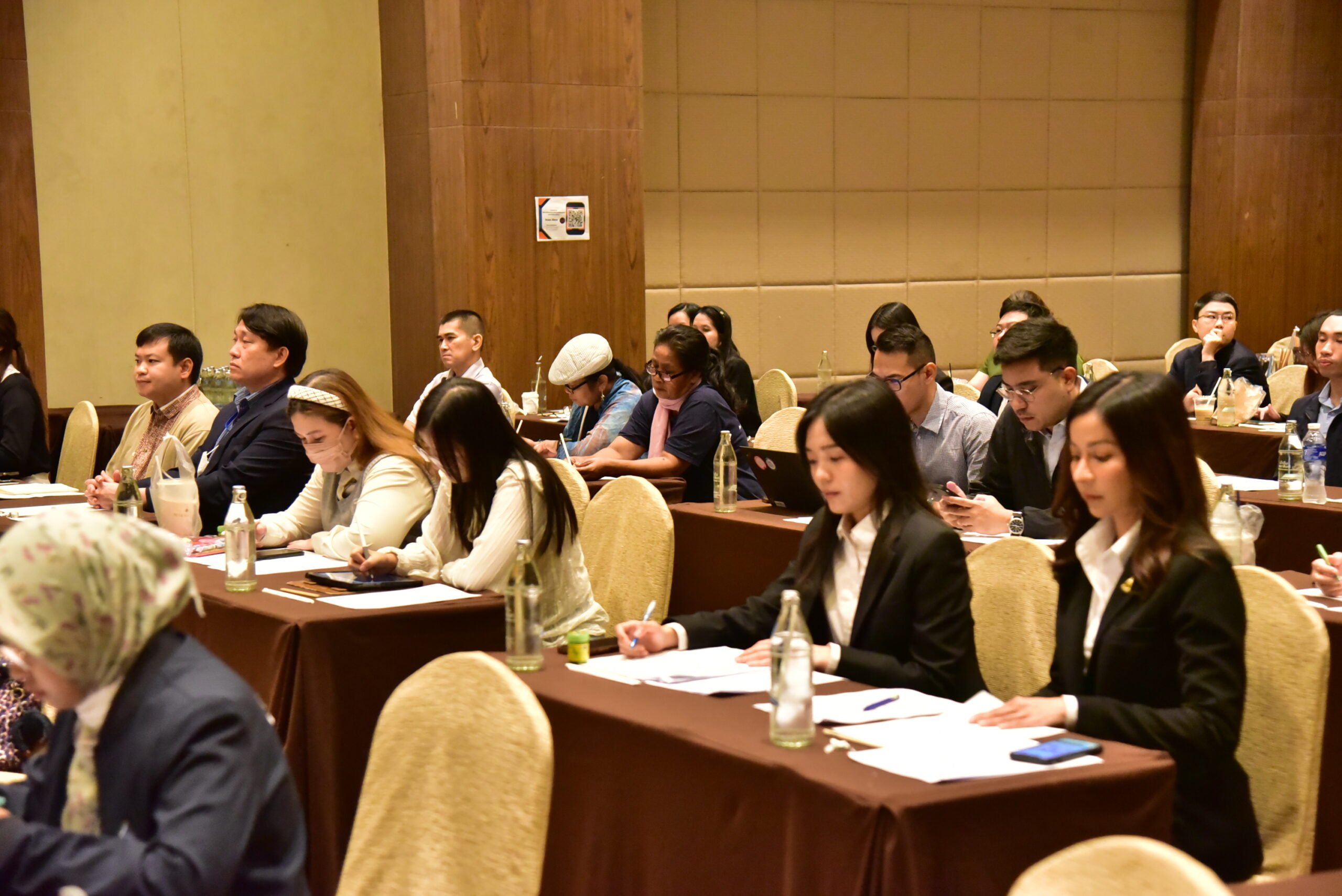
The third dialogue: Protecting freedom of expression from the abuses of the judicial process
The final dialogue, co-hosted by Clooney Foundation for Justice (CFJ), focused on the rise of Strategic Lawsuits Against Public Participation (SLAPPs) in Thailand and the gaps in the country’s current anti-SLAPP legal framework. The panel and participants’ group discussions also reviewed efforts by various stakeholders to address these issues.
Sanhawan Srisod, an ICJ legal adviser, moderated a session in which Judge Thanyanuch Tantikul, Acting as Judge of the Office of the President of the Supreme Court, highlighted SLAPPs as an abuse of judicial processes and underscored the court’s role in dismissing malicious cases to uphold legal integrity. However, she acknowledged that the application of existing anti-SLAPP provision under section 161/1 of the Criminal Procedure Code in practice was almost ineffective for its stated purpose.
Prof. Dr. Pokpong Srisanit, Dean of the Faculty of Law at Thammasat University, presented a recent effort to counter SLAPPs in the form of a draft bill by the Ministry of Justice. This bill would amend the criminal and civil defamation laws to include “public interest” as a defense and suggests procedural changes to expedite the dismissal of cases involving protected freedoms of expression, assembly, and association. Under this bill, defendants could declare themselves as SLAPP victims in court, empowering judges to review and dismiss such cases when warranted. However, it was noted that the bill is still in its initial phase and has seen little progress over the past few months.
Other panelists in this dialogue included Narong Srirasan, Office of the Attorney General, and Ponchai Banngong from the NHRCT.
